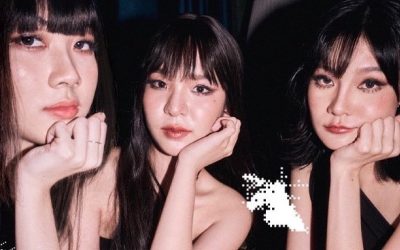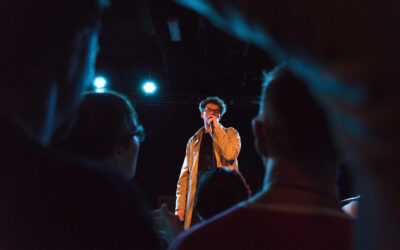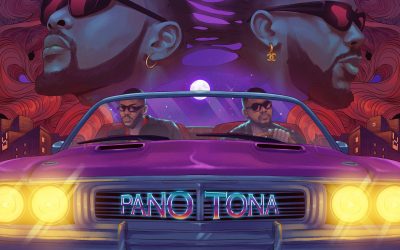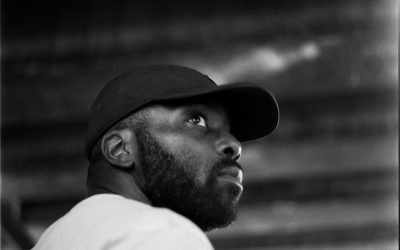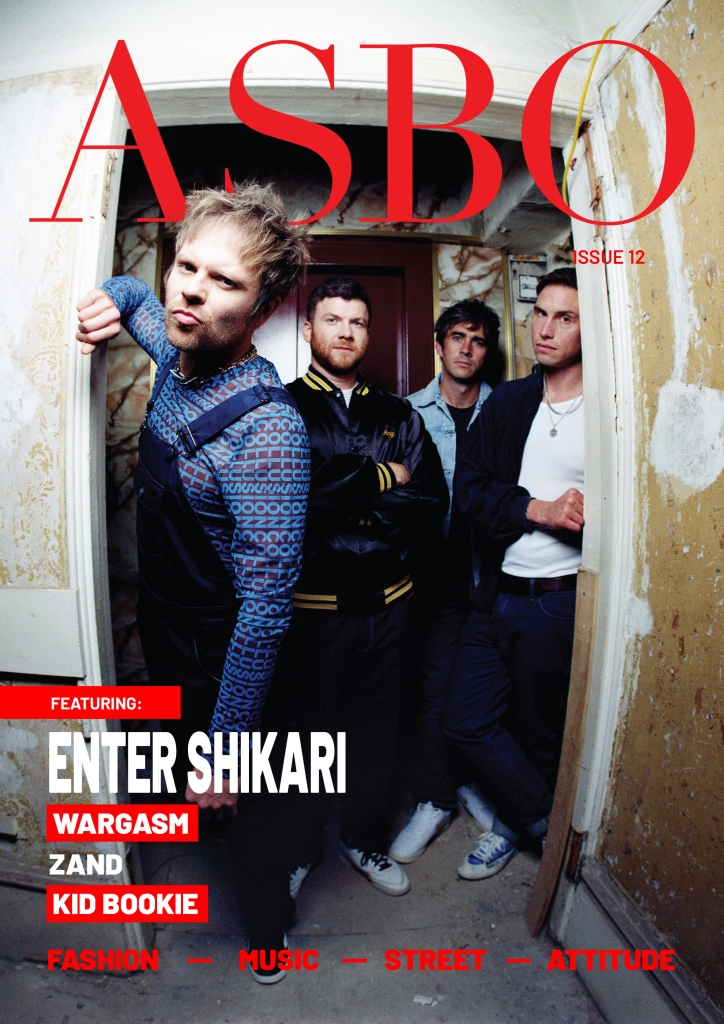
Transcending the overused musical concepts we hear so often today, London based artist Harve uses their innate ability for self-introspection to paint a watercolour like wall of sound that bleeds into every broken crack of your soul. Poignantly moving, Harve reflects on their evolution into themselves and the world around them, exploring nuanced queer experiences along the way. Releasing their latest single this week entitled ‘Other Side Of The Room‘ (co-prod. Hylunu), we are again met with an exquisitely tangible hit of thought-provoking minimalist electronic R&B. Written during and after a long term relationship that ended, the track delivers a message of the importance of self-awareness and compassion. With a new project on the horizon that follows on from their 2020 project ‘Held By The Moon‘ (prod. Kwes Darko), Harve is quickly becoming a staple in the London music scene, not to mention a vital and much-loved figure in the community.
Firstly, for our readers that may not have heard your music yet, can you tell us a little about yourself as an artist, how you got started and how you would describe the music you make?
I’m a queer, non-binary artist living in London. I only really ventured into exploring music after my Mum passed away when I was a kid. Before that, I had no interest in music other than listening to it. I started experimenting with Logic and Ableton and released my first set of singles under Harve in 2018. My first EP, ‘Held By The Moon’, debuted in 2020, produced by my friend Kwes Darko. Since then, I’ve collaborated with Fatima and BCBC, and I’m now focusing on moving into a space of honing in on being well rounded as a performer, writer and producer. The music itself I always find a little bit hard to place. I like to call it nighttime music. I think it exists somewhere in the realm of alternative r&b and sad boi songs, haha.
Sonically your music sounds very home-grown and fuses stunningly vintage-sounding electronic soundscapes with lo-fi minimalist hip hop beats. Are there any particular genres, artists or people that influenced the merger of those sounds?
I grew up listening to a lot of Soul music because of my parents, which I guess formed my love of beats. I’m a big Joni Mitchell fan, and her lyricism has always inspired me. Frank Ocean, Bon Iver, all the original artists that were and continue to be innovative. I remember listening to them in my bedroom and having heard nothing like them before. I tend to lean into anything slightly left-field. When I make music, I find it to be quite solitary by nature. That’s how I expect other people to listen to my music too. I know that’s not always the case, but I like the idea of music being a solo experience between the headphones and yourself.
You’re a fast-growing and essential figure in the queer community for musicians and listeners alike. How do you think the journey of finding your identity informs your perspective and point of view within your artistry?
As I continue on my musical and personal journey, I’ve become very grateful that everything has happened the way it has. The last few years have enabled me to become so much more comfortable within myself. As queer people or non-binary people, we have to balance a lot. We are also made to feel like we have to sell our experience on social media for it to be valid and that there can only be a few of us. As I’ve become closer and more comfortable with myself and my gender and sexuality, I understand how important it is for people like me to exist and be visible.
I’ve also learned to take the pressure of my expectations off a bit in order to become freer within myself. I now understand how fluid the world is. I didn’t see anyone like myself growing up, point-blank, and I know that’s the same for many people. At the same time, I think it’s a lot of pressure for queer artists to hold that responsibility and that isn’t always recognised. Thankfully, that is changing, but it needs to change more, so I’m happy to be a part of that.
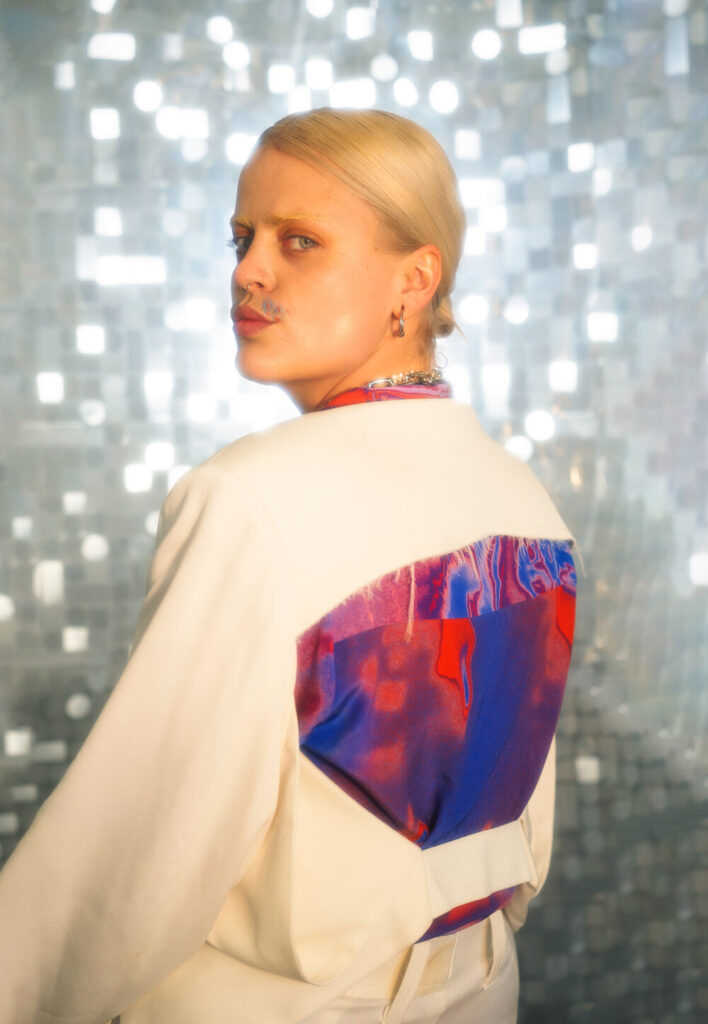
So your latest single, ‘Other Side Of The Room’ was released this week. What can you tell us about the process of making this track and the story behind it?
I started writing it last November, played some chords, improvised some lyrics, the usual. I got halfway through it and wasn’t sure how to finish it. I felt like I wasn’t entirely sure what I was trying to say yet, so I left it for a bit. I was in a long term relationship at the time which ended in January. The day after it ended, I sat down and listened to the song and clued on to what I was writing about. It’s amazing how your subconscious can catch on before you sometimes. I hadn’t put two and two together. In essence, the song details the experience of last year. Spending a lot of time alone forced me to look inwards daily. It’s about feeling distance between you and somebody else and also coming home to yourself within that process. It was about doing something for me, basically.
The track was co-produced with Hylunu (Rachel Chinouriri, Celeste). He’s so talented. When I was working on it, I sent him the demo stems, and he got the vibe straight away and sent his work back to me, and I was obsessed. We finished it together, which was great.
You’ve been coming into your own a lot more as a producer on recent tracks. Have you always been into production, and how has taking on that responsibility bettered your music and sonic palette?
When working with other producers, my process has always been to take in something that I’ve already started or a pre-made demo. I rarely work on things from scratch. Over lockdown, having all that alone time has helped me realise that I don’t always need other producers. Where I’m at in my artistry now, it’s more about them helping me finesse an idea rather than having more of an imprint on it. That’s helped my music a lot because it feels more personal now than ever. Having complete control over where I place sounds and lyrics and how I structure, layer and build things helps it feel much more of a part of me.
I’ve always had a considerable interest in production. It just didn’t always seem particularly accessible. It’s a very male-dominated industry. Through working with other people, I realised how much creative input I was having and that it should be reflected in me claiming my role in its creation fully. As I’ve put more music out, I feel more confident in being assertive over my sound.
You stay very true to yourself musically. Do you ever feel pressured to conform or evolve into different musical spaces in the face of the mainstream, or is that something you reject completely?
I’ve definitely felt that pressure at points. The only way I particularly want to do this whole music thing is to be as authentic to myself as possible in the process. I genuinely believe that’s the only way you can stay happy in this already challenging industry. I care less about things like song structures now, all choices are essential, but I’ve developed a freer mentality towards perfectionism or mainstream rules. I honestly couldn’t tell you who’s in the charts right now. I don’t see the point in trying to play by major label rules because they certainly aren’t interested in us as artists half the time, you know? I prefer to reject them.
Over time you realise how fickle the whole thing is. People come and go from the limelight. It’s important to stay grounded, and I think the only way to continue enjoying being an artist is to do what you want to do, then at least you can be proud of your work regardless of the reaction to it.
A lot of your music talks about your evolution in finding yourself. What would you say you have learned further about yourself this past year, and what spaces do you want to go into with your music?
I didn’t realise how I functioned alone last year. Many of us are too busy doing stuff to take the time required to sit down with ourselves and check in. I’ve always been more introverted and feel like I’ve had the opportunity to return to myself this year. I found it tricky at first, in all honesty, there was a lot I hadn’t addressed. I’m glad despite COVID that everyone has had the time to check in with themselves, the world feels like it was on pause. I think more and more people have realised that most of society and these systems stop us from being conscious and present. It’s made us realise just doing your best every day is perfectly okay.
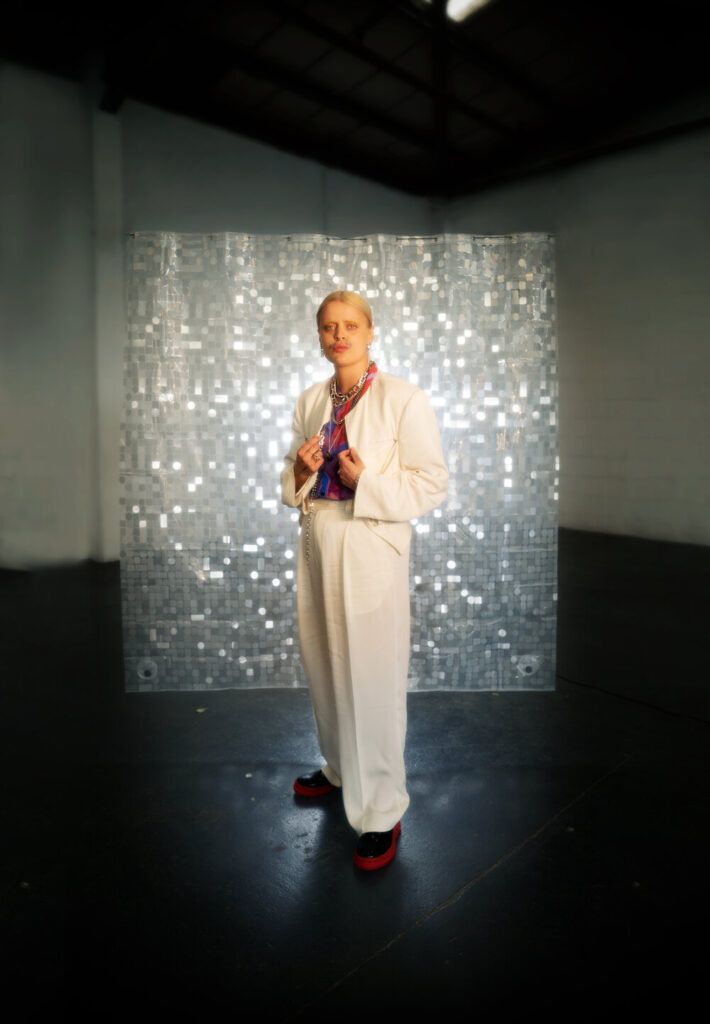
So I know you’ve got a new project in the works. Can you tell us anything about that or the themes?
Yes, I do. There’s essentially a whole project ready to go that I wrote over the past two years. It’s mainly about my journey and evolution with gender and relationships and how all those things intertwine. As queer people, we have very nuanced experiences. Despite us often sharing specific experiences (shame, body image, openness)and having them overarch, it’s truly different for everyone. The project explores a lot of that. I first downloaded Ableton last year, and I love it so much, it’s pushed me into creating some pretty unique stuff. It’s hard to say what’s coming next, but it’s most certainly going to be exciting.
Words: Connor Aiden Fogarty @boypolar
This interview has been edited for length and clarity purposes.


